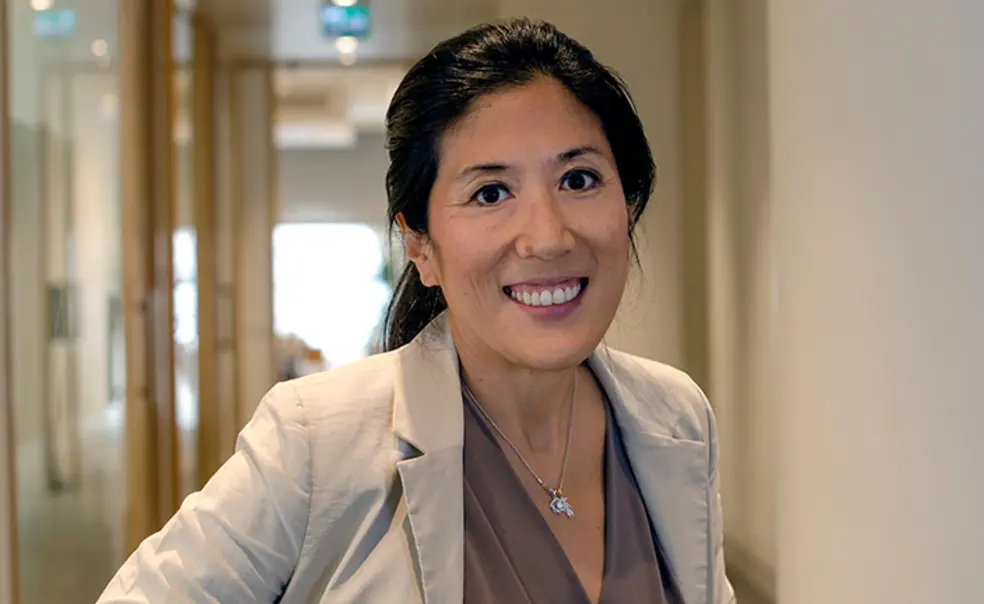Helen Lee Bouygues ’95 Is Teaching the World Critical Thinking
It’s uncomfortable to challenge your own biases, Bouygues says
When Helen Lee Bouygues ’95’s daughter needed to research King Francis for a school project, the 7-year-old didn’t turn to either of the two books about him sitting right in her room.
She asked to borrow a computer and went straight to Wikipedia.
“That got me thinking about how children gather information,” says Bouygues. “For her, it was about expediency and being faster, but that has implications around how children learn.”
How can children be taught to think critically about where to get information? And how can adults use the same thought patterns in business, and in life? Both are key focuses for the Reboot Foundation, created — and funded — by Bouygues and her husband.
The three-year-old project is just one way Bouygues has pushed critical thinking. A politics major at Princeton, Bouygues earned an MBA from Harvard in 2000 before going on to leadership roles at a dozen companies and becoming a partner at consulting firm McKinsey.
Today she sits on seven boards, including one for the bond holders of retail giant Steinhoff Europe, which had the second-largest fraud case in the world after Enron. She also writes a column for Forbes.
Her specialty is turning around troubled companies that need to re-create their business models, and she uses critical thinking skills to do it. In the Harvard Business Review she described a lingerie company that didn’t realize international women had different tastes than American women. The executives needed to realize they were making assumptions, question them, and think differently.
It’s uncomfortable to challenge your own biases, she says, because ultimately, people do not like to change.
“Critical thinking is not something you’re born with. You’re taught and you need to exercise it,” Bouygues says from Paris, where she lives. “It’s like speaking a second language.”
Reboot is funding research around elevating critical thinking at Princeton and Yale. At Princeton, psychology professor Tania Lombrozo is examining when and why people use deliberation to make decisions, and when they rely on gut reactions.
The foundation has also been making resources available to the public for free online. Many are directed at helping parents grow their children’s critical thinking skills, for which Bouygues recommends three essential steps: Ask children a lot of “why” questions, take time to question your own thinking to catch your own biases, and help children seek opposing views.
Bouygues hopes the foundation’s work will help break the cycle of polarization, which feeds and is fed by “fake news.” People increasingly gather their news from social media, which uses algorithms to keep showing them articles and opinions that correlate with their original point of view. The revenue model “is to play on your emotions,” she says.
But some aspects of the current dynamic may be changing. As schools move online during the pandemic, the pressure of standardized testing is easing, she says, creating an environment where superintendents and principals have the liberty to teach more critical thinking skills.
“The good news is, there are many different tools available both for information technology and critical thinking to better challenge your children,” she says.












No responses yet